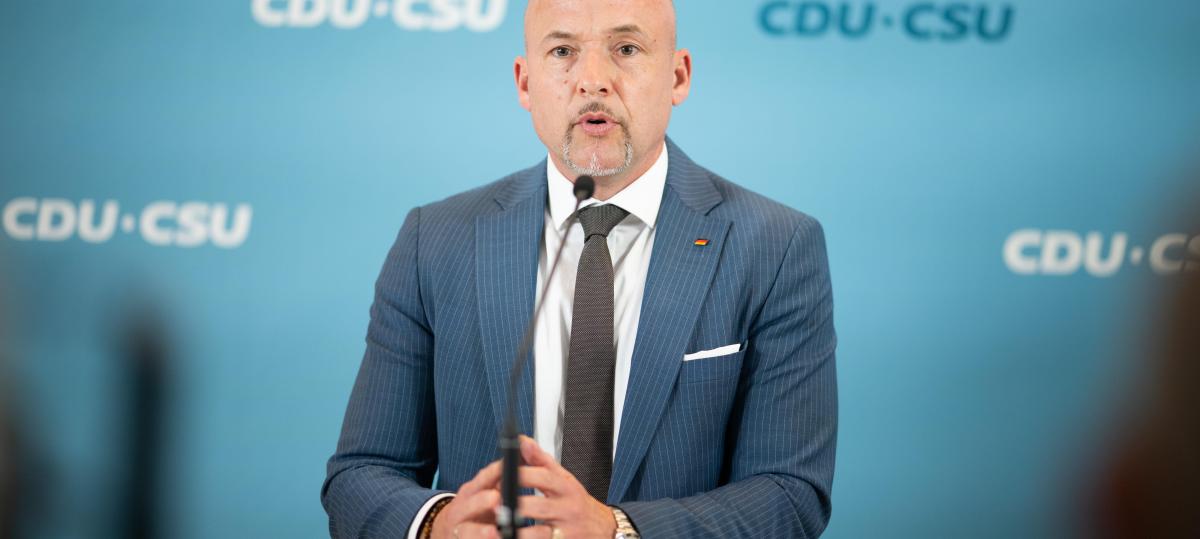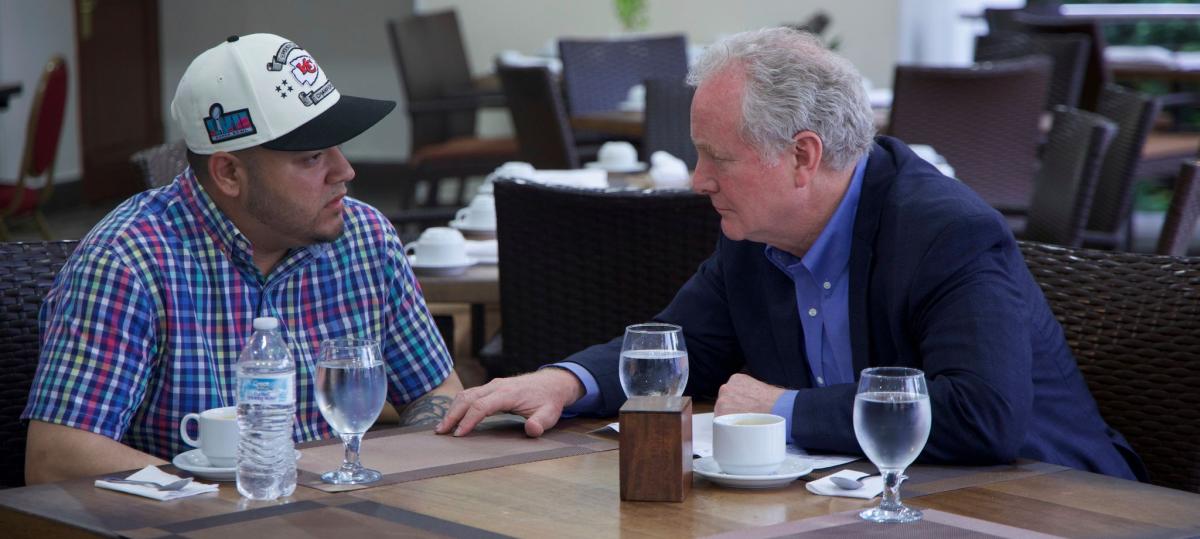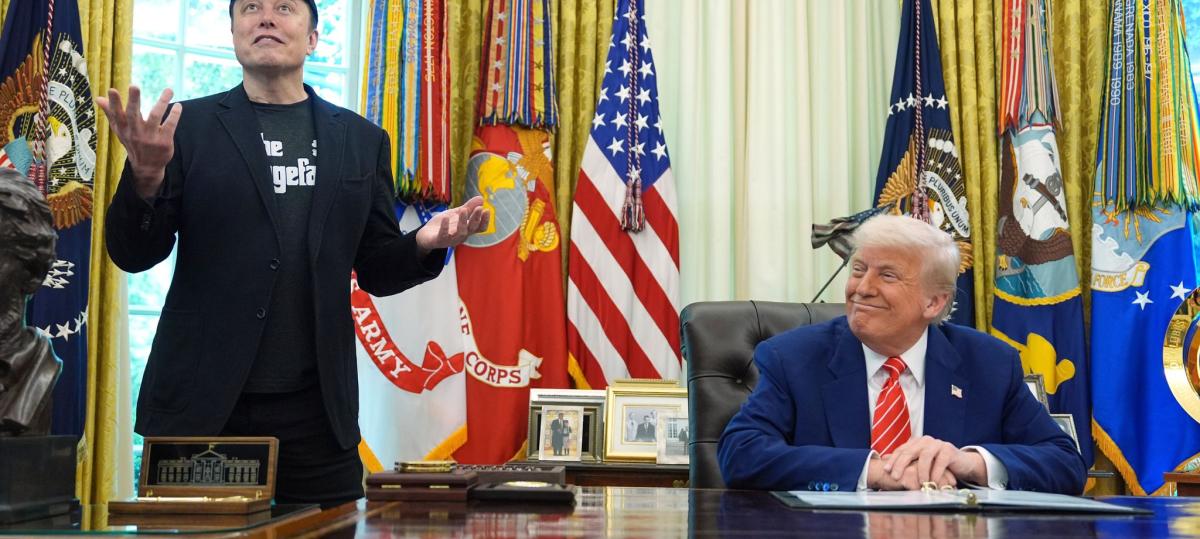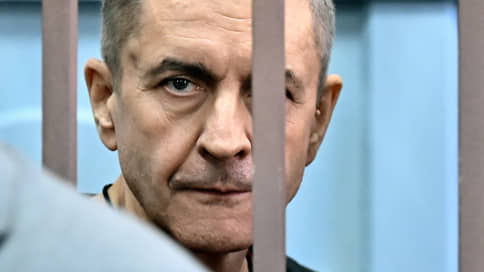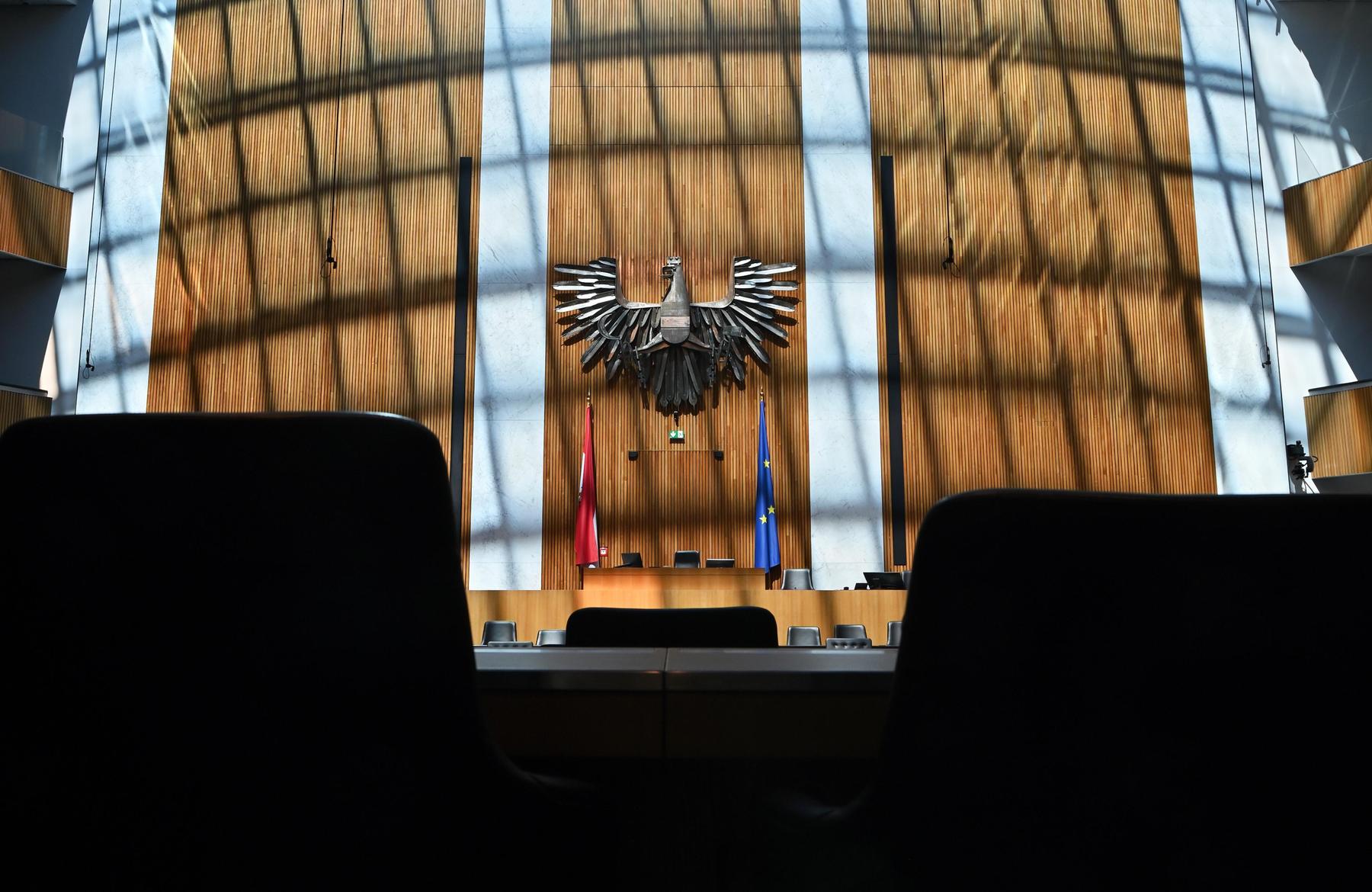What is the success of the left?
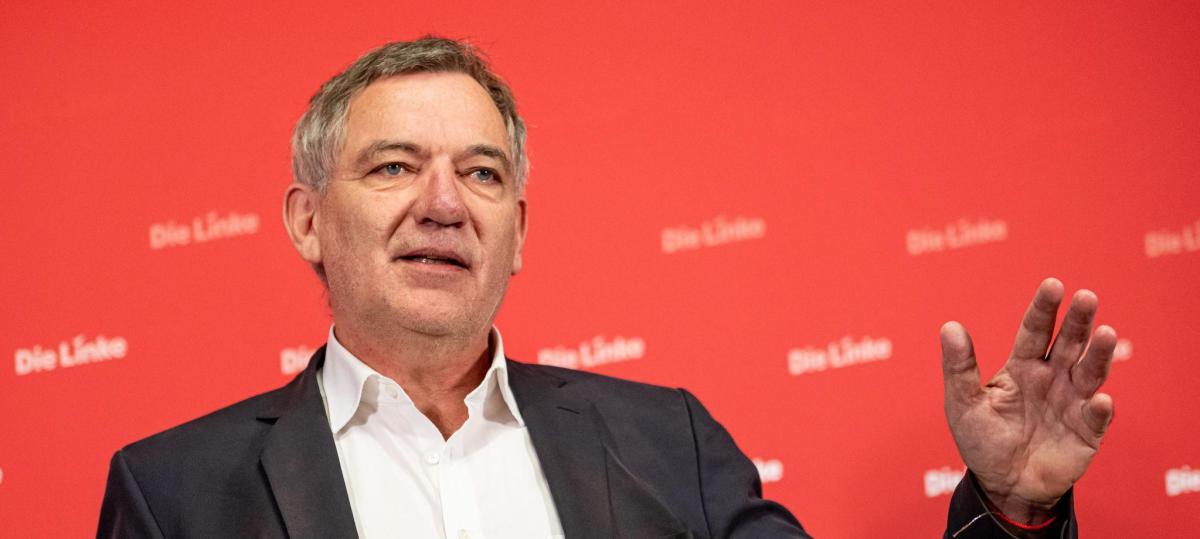
Mr. van Aken, you are for The left climbed into the Bütt when it looked dark and there was little hope. Your party has done the voting miracle and has surprisingly moved into the Bundestag. Will you now apply for the parliamentary group chair?
Jan van Aken: I don't speak publicly about personnel issues.
Is there already a schedule when the new parliamentary group is determined?
Van Aken: We have so many new people in Bundestagthey have to get to know each other first. It works very relaxed. Heidi Reichinnek And Sören Pellmann is now continuing at the top of the parliamentary group. Either before or after the summer break, we will then re -elect the parliamentary group leader.
The left comes to 11 percent in a new Forsa survey, the Greens are 12, which SPD at 14 percent. Can you imagine becoming the strongest force in the left spectrum?
Van Aken: Yes, that's our goal. Not in the next six months or not next year. But for the Bundestag election in four years, we have decided to top our best result from 2009 so far. At that time we got 11.9 percent.
Where do you get the confidence that this can go?
Van Aken: Because we speak from the heart of the vast majority in so many points. The elbow company does not want this majority, this against each other. Many people are afraid that society falls apart, politically and socially. In contrast, we have recipes.
For example?
Van Aken: The rising rents ensure despair and we want to enforce the rental cover. We fight for higher pensions and an increase in the minimum wage. If we do this in a language that most people understand, why should we not the strongest party on the left of the CDU become?
The SPD will try to prevent this. In their opinion, can the Social Democrats make left politics alongside the Union? The SPD got a lot out of the explorations with Friedrich Merz.
Van Aken: Beyond From the increase in the minimum wage At 12 euros, the SPD and the Greens in the last three years of the traffic light coalition of the FDP let. There was little left -wing politics, although the SPD put the chancellor. I am skeptical that this changes. But I would not write down social democracy yet.
The left is in the Bundestag, the BSW is not. In the meantime, look up milder Sahra Wagenknecht?
Van Aken: You won't hear anything negative from me. We do not step down.
In its leading application for the party congress in May it says: The left must become an organizing class party that appeals to the diverse majority of people and stands for their interests at their side. With alleviation, that sounds a lot like SED and GDR.
Van Aken: (laughs) We also heard the accusation on the party executive. And that's why we wrote down exactly what we mean in the guidance application. In English, the term working class is still common, with us in Germany.
But does this working class still exist?
Van Aken: We mean the wages depending on wages that are subject to a certain pressure on the part of the employer. Of course there are big differences, depending on whether someone earns 8,000 euros gross or 2,000. But most of them don't have 8,000 euros. And we want to be their partner, we want to support them. If you want to start a works council. If you want to defend yourself against usury rents. This is the organizing class party we are talking about.
The contrast between the possession and non-owners appears behind this concept of class. We thought that the left had made peace with the social market economy 25 years after the turn?
Van Aken: We are a socialist party. We are the defender of the welfare state, but we don't stop there. An example: we want The rental cover Introduce nationwide. That is a welfare state. But we want a social housing in a cooperative and municipal hand. Investors should no longer make money with the construction of apartments. This is a step further as a welfare state. And the third step is: land should only be in public hands because this is an absolutely limited resource. Everyone is only provided with land on a leasehold: they can build on it or operate agriculture. But lease is not private ownership. That is socialist.
You could socialize the companies.
Van Aken: Not the overall entrepreneurship. But we had some specific points in the election program. For example, we are concerned with housing associations with more than 3000 apartments. It is not correct that with apartments in which people have to live is speculated on the stock exchange.
Many apartments are now undercovered for holiday guests and thus withdrawn from the housing market. What do you think of companies like Airbnb?
Van Aken: I think it's perfectly fine when you go on vacation for four weeks and then rent the apartment. No living space is lost. I was recently at a disarmament conference in Geneva and used Airbnb myself. The apartment belongs to someone who works at the UN and was on the road at the time. However, I never used Superhosts offers. They have several apartments. Living space is misused, which must be prohibited.
In the election program of the left, the lawsuit about an too much bureaucracy compared to other parties was the smallest. Why?
Van Aken: There are bureaucratic things that are really nonsensical. But what FDP and CDU mean with exuberant bureaucracy has something to do with the protection of people. Take The minimum wage control. The companies must document the working hours. This is bureaucracy, yes. But it prevents the minimum wage from being undermined. In addition to the completely missed bureaucracy, there is also one that is right and important.
They appear for a diplomatic solution to the Ukraine war. Mr. Trump talks to Mr. Putin, both want to divide the world into spheres of influence. Is it what you imagined?
Van Aken: No. There is a sentence from Trump about which has hardly been reported. He would be for it, he said that China, Russia And the United States halve its military spending. Sounds great, but behind it is that the three states make it out among themselves. This is his worldview and something that has to worry the most. Three world powers that divide the globe. But then their boundaries hit each other. And when two nationalists get border problems, it means war.
The result is that the European armies are massively upgrading. You are against it. Why?
Van Aken: The right question is: what is the money used for? If it is for national defense, I'm there. However, we do not need any additional money for this. The approximately 50 billion from the current budget are sufficient. It can probably be significantly less. However, if it should be about that we also want to get involved globally and want to climb the fourth world power, then the basic falsch. This question of what is unfortunately nowhere answered. That is why this whole discussion is completely lying.
The Ukrainians demand security guarantees including a peace force. We conclude from your answer that the Bundeswehr shouldn't be there?
Van Aken: The term peace force And everything around it is so unclear in the current debate that it worries me. I have the assumption that it will be deliberately undefined so that you can station fighter troops in Ukraine who can fight Russia back in case of doubt. My concept of peace troops, on the other hand, is the classic blue helmet insert, such as in Cyprus, I think that's okay. According to an agreement between the two sides, there is a ceasefire line that is checked by neutral forces. I was often replied that the Russians would simply shoot their way free. My answer is: That's why some of these blue helmets have to be Chinese, because Russia would not shoot them.
Can you trust Russia and Vladimir Putin?
Van Aken: No. You have to rebuild trust.
Another tip, please. How long will Gregor Gysi speak as the aging president on Tuesday at the constituent meeting of the Bundestag: under half an hour or over?
Van Aken: It's simple. Of course over half an hour. I would even say: more than an hour. My tendency goes towards an hour and twenty minutes.
To person
Jan van Aken was born on May 1, 1961 in Reinbek. The doctoral biologist was a genetic engineering expert and activist at Greenpeace for a few years, then biowapen inspector for the UN. In 2009 he became a member of the Bundestag for the DIE LINKE party and remained two legislative periods there. He has been the Co-chairman of the Left Party since October last year.

